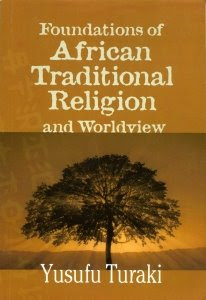1) John Piper, "How I Distinguish Between the Gospel and False Gospels" from the Text and Context 2008 Resurgence Conference. John Piper is always worth listening to, but I especially appreciate his unfolding of Scripture when treating the need for discernment. You can watch the video or listen to the audio at the Resurgence site, or you can check out Piper's outline through the Desiring God site. Either way, this message is definitely worth your time.
2) Juliana Buhring, "Our dad lied about us" in the Sunday Vision newspaper (Uganda). This is a continuation of the controversy brewing in Uganda on The Family cult. A former member and daughter of a leader of the Family in Uganda responds to what her father had previously told the paper. Her rebuttals are very informative.
3) David Sills, "Missions Metaphors" on the Culturality and Missiology blog. Sills is a veteran missionary that always brings much insight to international missions. In this post, he warns of ministry that does not continue after the conversions of believers to build mature churches and strong Christians. As he points out:
What of the work in Europe, Sub-Saharan Africa, Latin America, the South Seas, or the United States? We reached many of those places years ago. Many strong buildings were built, but we had other work elsewhere that beckoned. When I hear of buildings that missionaries of yesteryear left behind being torn down, I wonder about the spiritual and kingdom work they left behind. Is it strong? Or, like Europe, have forces of fallen nature rendered it rotten and falling in on itself? Every Christian population is only one generation away from heresy or general apostasy. We must dedicate ourselves to the task of reaching and teaching. Reaching the unreached is great, but the Great Commission is not merely about reaching; Jesus also said we were to be "teaching them to observe everything I have commanded you."Make sure to read the entire article.
4) "Movement for the Restoration of the Ten Commandments of God" on Wikipedia, and Gerald Businge, "Seven Years Since the Kanungu Massacre: Are we any wiser?" in the UGPulse (Uganda). Next week marks the eighth anniversary of the Kanungu Massacre. On March 17th, 2000, more than 500 people had burnt to death in a church in the Kanungu district of Uganda. They were members of the Movement for the Restoration of the Ten Commandments, a religious cult. May we all learn from this horrible tragedy.

 Even if CGC is exaggerating how rapidly they are growing, this new religious movement has made tremendous inroads around the globe (especially in Mexico and India). They even have affiliate churches in half a dozen African countries and shortwave broadcasts to many more throughout the continent. Founded by Reverend Berniece R. Hicks, the movement is a self-described "fundamentalist, pentecostal Christian group."
Even if CGC is exaggerating how rapidly they are growing, this new religious movement has made tremendous inroads around the globe (especially in Mexico and India). They even have affiliate churches in half a dozen African countries and shortwave broadcasts to many more throughout the continent. Founded by Reverend Berniece R. Hicks, the movement is a self-described "fundamentalist, pentecostal Christian group."


